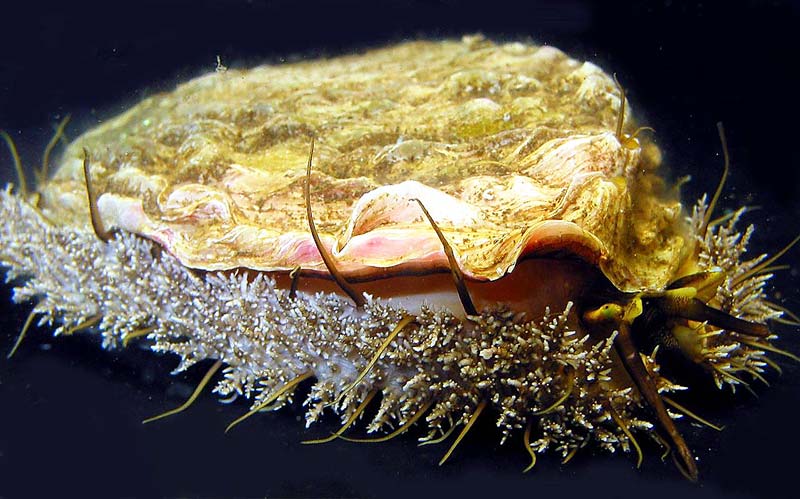Abalone fishery closure not the answer—TRAFFIC
Cape Town, South Africa, 25 October—the South African government’s decision to close the commercial wild abalone fishery from 1st November 2007 is unlikely to lead to a decrease in abalone poaching, according to TRAFFIC, the wildlife trade monitoring network.

“Whilst the decision has been taken in good faith, the real issue affecting the industry is the illegal harvest and trade in wild abalone,” said Markus Bürgener, Senior Programme Officer with TRAFFIC.
For years, high levels of illegal harvest and trade in abalone has caused a decline in stocks and consequent annual reductions in the quota available to legal harvesters.
“It’s clear the South African abalone fishery is in a crisis, but a closure should not necessarily be seen as a panacea,” said Bürgener, adding that a three-year closure of the Chilean abalone fishery in the 1990s increased abalone prices on the black market and exacerbated the illegal fishery.
TRAFFIC warns that closure is only likely to succeed where comprehensive law enforcement, research and socio-economic initiatives are put in place and where stakeholders are directly involved in future abalone management plans.
In a Statement from the South African Ministry of Environmental Affairs and Tourism, Minister van Schalkwyk noted it was a difficult decision to take because of its impact on the livelihoods of many people and families in the industry.
“If the Minister’s objective was to protect the abalone stock, then he has made the wrong decision,” commented Maria Hauck, a senior researcher at the Environmental Evaluation Unit, University of Cape Town, who has researched the socio-economic aspects of the abalone fishery for over a decade. Her research results have clearly indicated the danger of closing the fishery and the negative repercussions that could result.
...the real issue affecting the industry is the illegal harvest and trade in wild abalone,” Markus Bürgener, Senior Programme Officer with TRAFFIC
“The Minister is alienating the legal fishermen, the very people he should be collaborating with to develop a strategy to protect the industry.”
Bürgener noted that “we are encouraged to see that the Minister makes reference to the ‘up-scaling’ of monitoring and control on the part of the Department. However, we question why this is only happening with the closure of the fishery when poaching has been the major threat to the resource for many years.”
Hauck voiced similar concerns pointing out that “law enforcement efforts should be implemented to protect the fishery, and should be seen as one strategy among many to combat the illegal abalone trade.”
To ensure long-term sustainability of the abalone fishery, TRAFFIC consider there is a need to develop alternative economic opportunities, assess the possibilities for abalone re-seeding and implement joint management decision-making strategies. All these need to be developed in conjunction with more traditional enforcement methods implemented through a co-ordinated approach with other government departments.
Notes:
* TRAFFIC's work on the abalone trade in South Africa is generously funded by the Foreign and Commonwealth Office (FCO) of the United Kingdom.
* TRAFFIC in South Africa is supported by the Green Trust, WWF South Africa, Endangered Wildlife Trust, Mazda Wildlife Fund, Tony and Lisette Lewis Foundation, Tiger's Eye Retail, the Mackenzie Foundation and the Joan St Leger Family Trust.



